A fortnight at Wimbledon: Controversy and thrills aplenty, but it's Roger Federer who once again steals the show
We take a look back at two weeks of tennis which saw off-court outbursts, allegations of sexism and Federer's sparkling form dominate the headlines
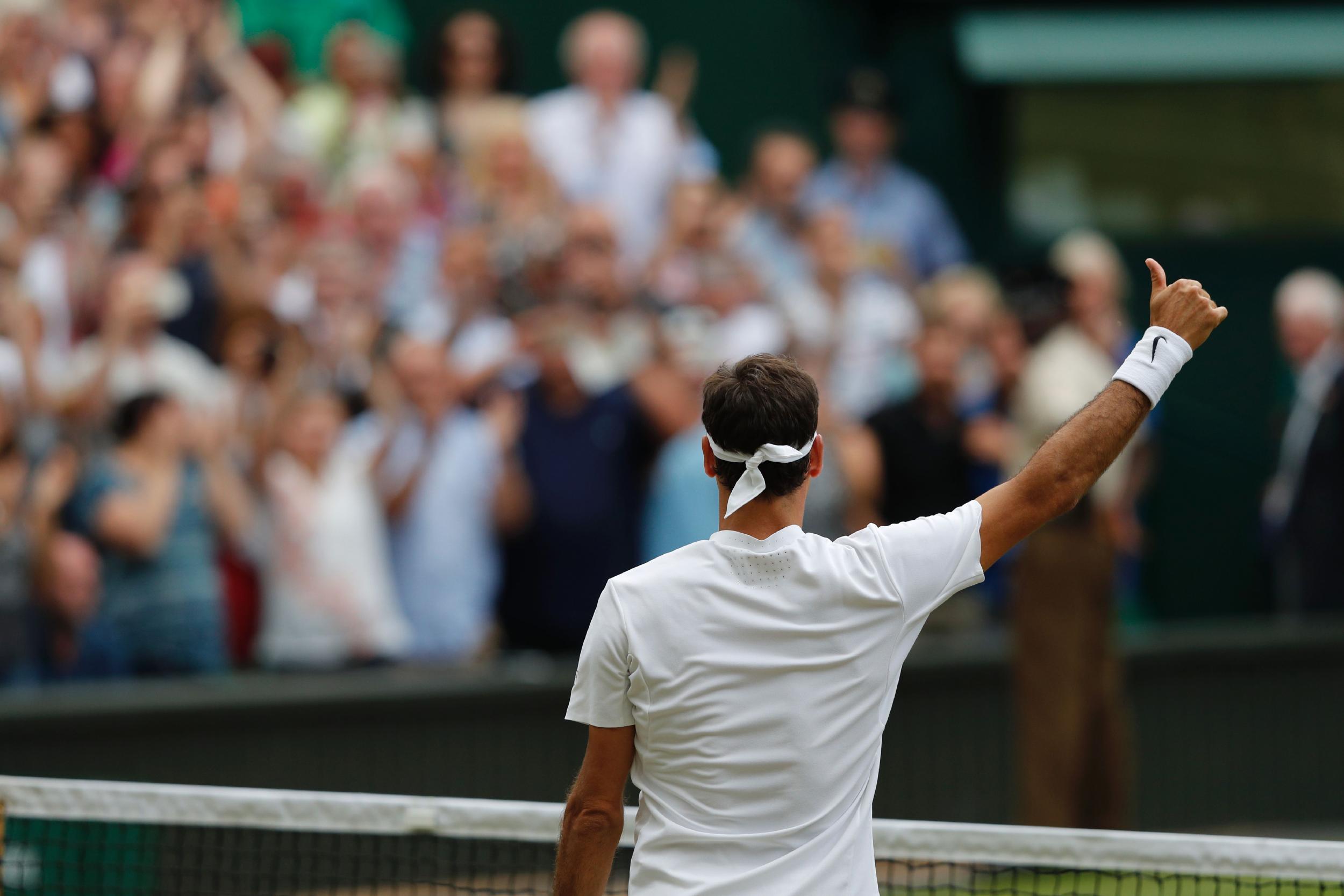
Your support helps us to tell the story
From reproductive rights to climate change to Big Tech, The Independent is on the ground when the story is developing. Whether it's investigating the financials of Elon Musk's pro-Trump PAC or producing our latest documentary, 'The A Word', which shines a light on the American women fighting for reproductive rights, we know how important it is to parse out the facts from the messaging.
At such a critical moment in US history, we need reporters on the ground. Your donation allows us to keep sending journalists to speak to both sides of the story.
The Independent is trusted by Americans across the entire political spectrum. And unlike many other quality news outlets, we choose not to lock Americans out of our reporting and analysis with paywalls. We believe quality journalism should be available to everyone, paid for by those who can afford it.
Your support makes all the difference.There was to be no epic five-set dual with Rafael Nadal in the final. No Sergiy Stakhovsky style first-week upset. Instead, the path to Grand Slam glory was made miraculously clear for Roger Federer at this year’s Wimbledon, as he surpassed the seven titles won by William Renshaw and Pete Sampras without even dropping a set.
Federer, who turns 36 next month, strolled past Marin Cilic in the quickest men’s final since 2005. The result, which had already seemed a foregone conclusion long before the two men had emerged blinking in the sunlight on Centre Court, was assured when Cilic began struggling with a painful foot injury at the end of the first set. At no point was this a contest, but that did not matter. The 2017 Championships ended precisely as they were supposed to.
Remarkably, though, Federer was to have an even easier victory at this year’s tournament. Some two weeks earlier, he was gifted his spot in the second round when Alexandr Dolgopolov retired injured after just 43-minutes of their match on Day Two. Centre Court was aghast, as earlier that afternoon Novak Djokovic had also received a free pass when Martin Klizan pulled out, at a similarly early stage in the second set.
Federer conceded the beginning of the tournament had been a “let-down” for the crowd. Don’t be surprised if the rules surrounding early retirements are changed in time for next year’s Championships.
While some players slinked out, others crashed out. Stan Wawrinka’s four-set defeat to the impetuous Russian Daniil Medvedev saw him become the first big beast slain at these Championships, his hopes of becoming just the sixth man to achieve a career Grand Slam in the Open Era postponed for another year, at least.
And in the women’s draw, a number of the top seeds fell in the first week. Pre-tournament favourite Petra Kvitova was stunned by the American Madison Brengle, while Karolina Pliskova’s winning run on grass was ended by surprise package Magdalena Rybarikova, who would go on to reach the semi-finals.
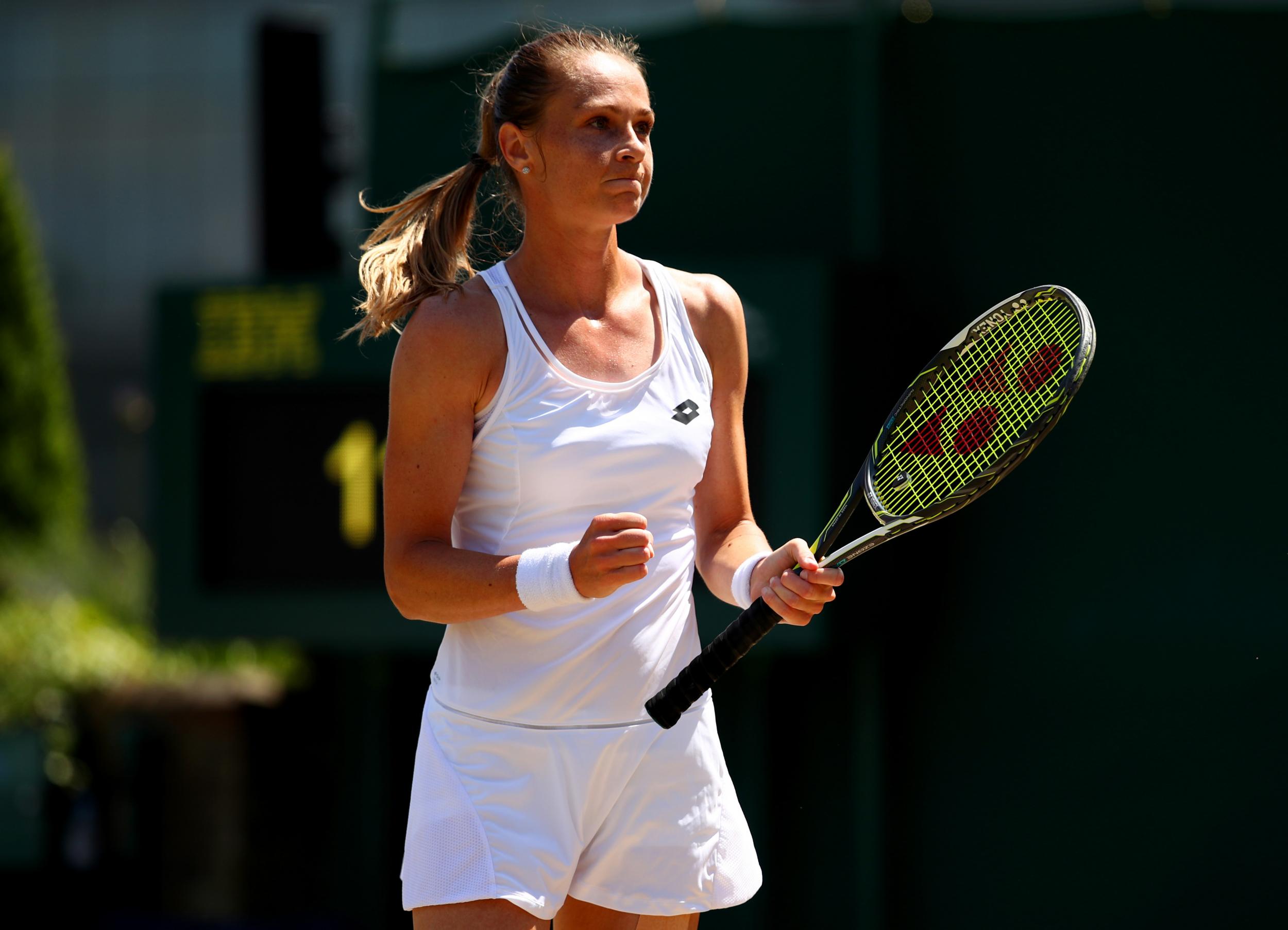
From implosions on the court, to explosions off it. Bernard Tomic limped out in the first round before embarking on an extraordinary press room rant which included the admission that he was “bored” of tennis. He was promptly dropped by racket sponsor Head — who had stuck with Maria Sharapova through her doping ban but found the Aussie’s comments beyond the pale — and fined £11,600 by the ITF.
What with Daniil Medvedev, Adrian Mannarino and Venus Williams also accruing large fines for various misdemeanours, these were to be one of the worst behaved Championships in recent memory.
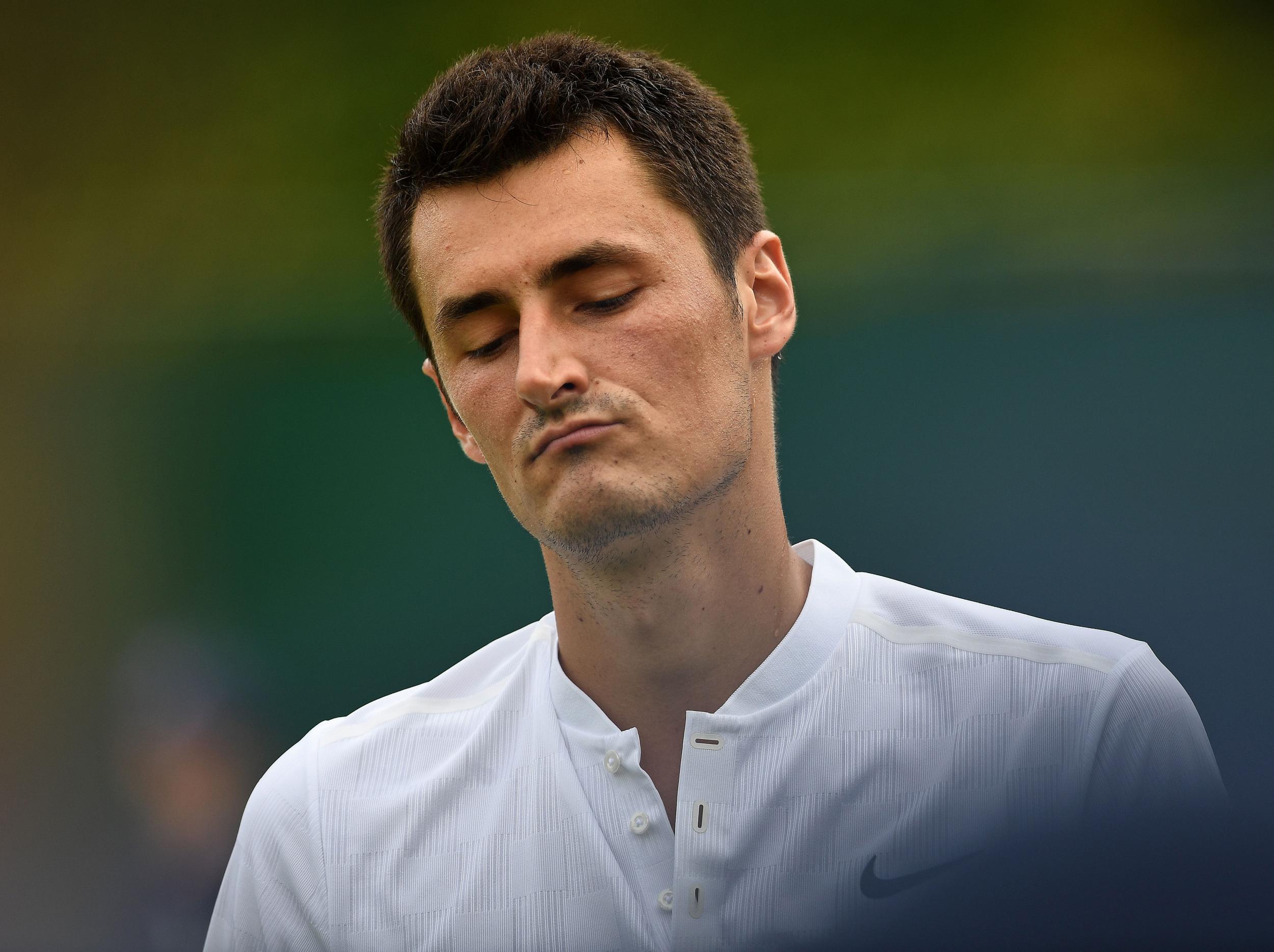
They were also to be one of the more controversial, with the matter of early retirements soon superseded by bigger rows. Somewhat predictably, The All England Club’s scheduling policy once again came under fire, with a number of the sport’s top female stars unhappy at being overlooked for a place on the biggest court. The biggest snub was handed to Angelique Kerber and eventual winner Garbine Muguruza, who contested one of the matches of the tournament in the fourth round, but did so in front of a modest crowd on No 2 Court.
“I was really surprised at the scheduling,” was the German’s diplomatic response when quizzed about playing away from the spotlight. The French Open champion Jelena Ostapenko, who would eventually lose in the semi-finals, was instead as blunt as her big-hitting approach out on the court. “I think I deserve to play on a better court then No 12 Court,” the 20-year-old scowled, after her entertaining win against Elena Svitolina.
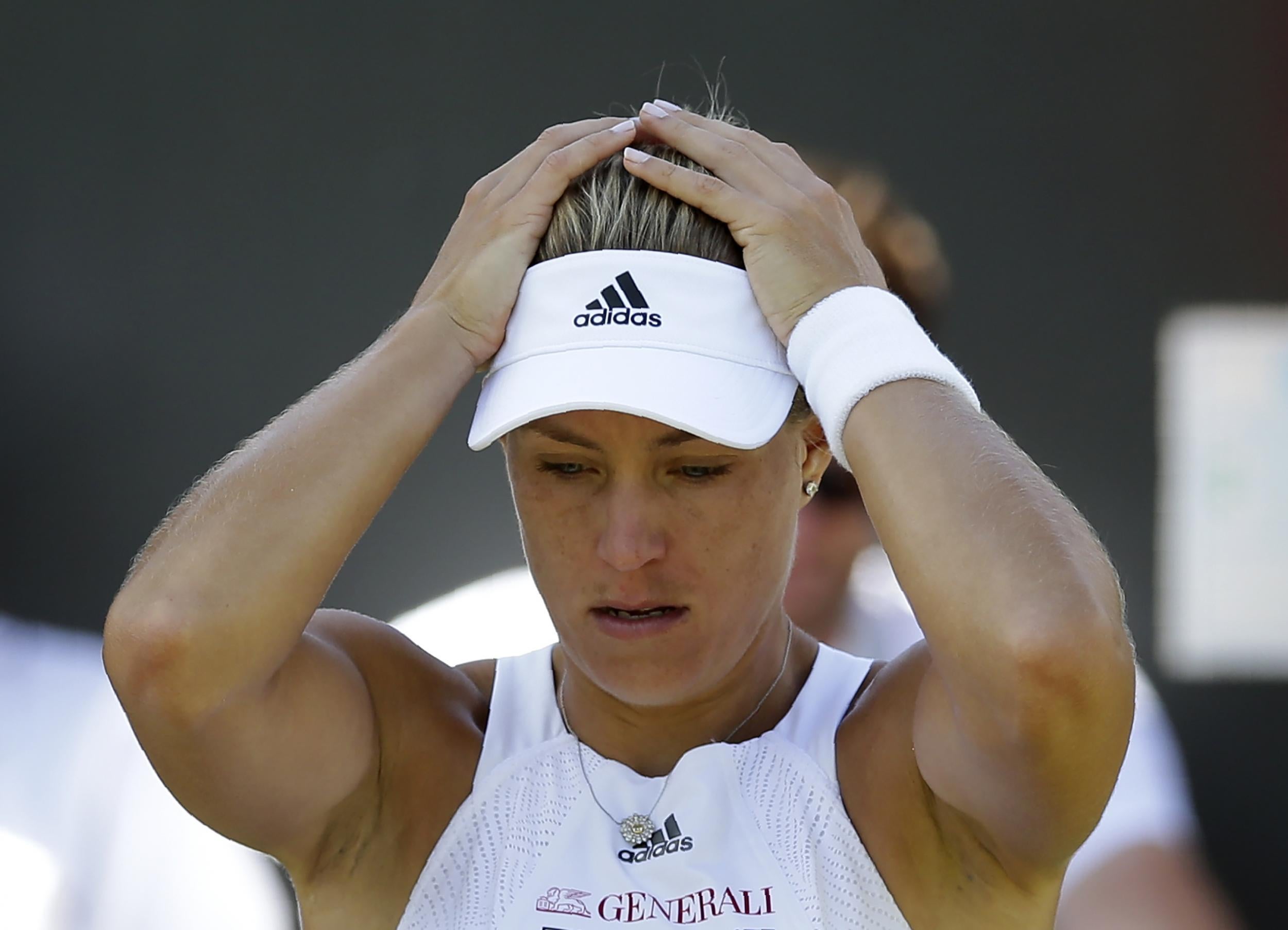
More unusual than the now sadly inevitable sexism row was the state of the lawns. On first glance, The Championships were as beautiful as ever: the creeper-clad walls of Centre Court alive with Boston Ivy and blooming planter boxes of pink and blue hydrangeas lining the balconies. There was just one problem — the playing surface.
With temperatures reaching 30C in the first week at Wimbledon and little rain, the courts began to look especially beaten up. The Frenchwoman Kristina Mladenovic was one of the first players to complain, sardonically observing “there is no grass” after her second round defeat, while Andy Murray and Fabio Fognini also raised their concerns.
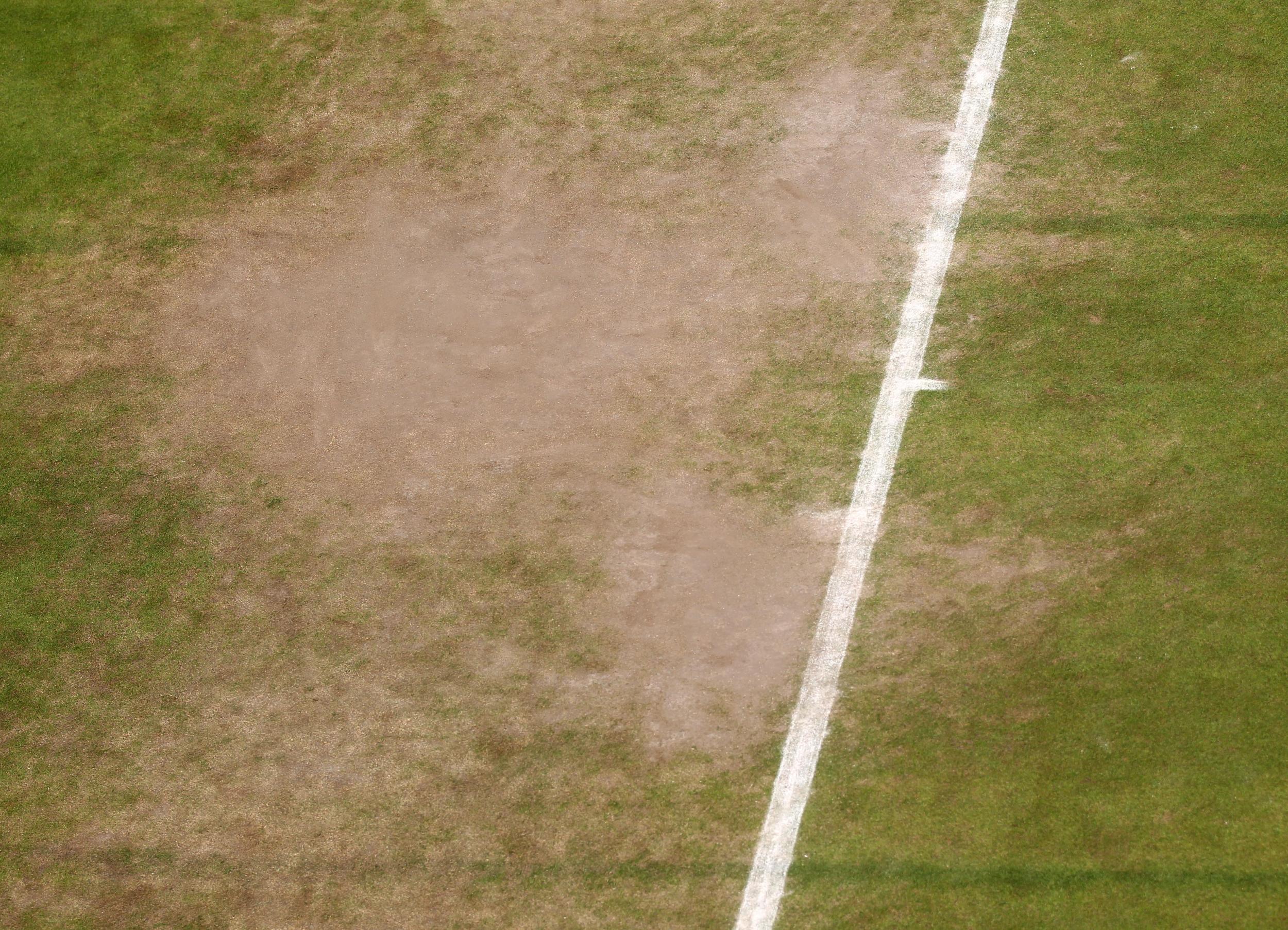
But no player had as much right to complain as the desperately unfortunate American, Bethanie Mattek-Sands. On the fourth day of the first week, the 32-year-old suffered a sickening fall while chasing down a drop shot, in the most harrowing moment of the past fortnight. “Help me,” Mattek-Sands was heard to cry, as she lay stricken on Court 17. It was later announced she had dislocated her kneecap and ruptured a tendon. She will be fortunate to return to the sport.
If Mattek-Sands’ horrific injury was the nadir of these Championships, perhaps an epic five-set match between reigning French Open champion Rafael Nadal and Luxembourg journeyman Gilles Muller was the zenith. Nadal was the second favourite to win the men’s singles behind Federer, but came out second best in a titanic duel lasting almost five-hours and some 389 points.
Harangued in the press-conference room by a sea of disbelieving faces, Muller found it difficult to truly appreciate the scale of his achievement. “I’m just glad it’s over – somehow I made it,” was his gloriously understated reply to one particularly ebullient questioner. At 34, Muller is unlikely to ever better this year’s run to the quarter-finals. Nadal is three years younger, but must also be wondering if he will ever enjoy success at this tournament again.
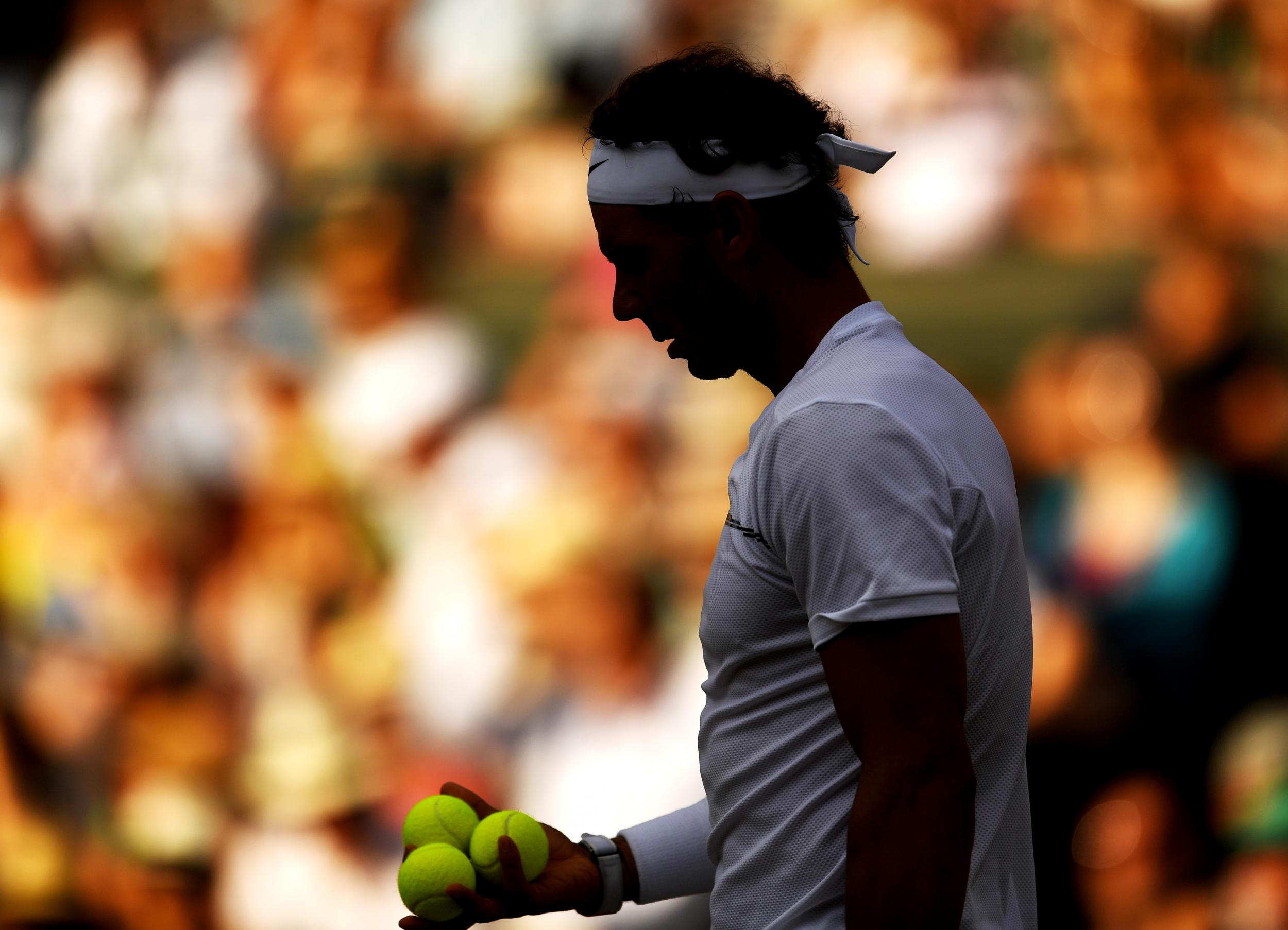
Andy Murray was another champion to exit prematurely. His hard-fought, four-set victory over the buccaneering Fabio Fognini will live long in the memory but — in truth — his was a campaign short of energy and inspiration. He managed to limp through until the quarter-finals until he was finally, painfully, felled by Sam Querrey. The World No 1 will now turn his attentions towards recovering from a hip injury in time to play at the US Open.
Failing to do so could well turn out to be a blessing in disguise.
Unusually then, after two decades of willing the likes of Tim Henman, Greg Rusedski and Murray though to the second week, British attention turned to the women’s singles. After encouraging runs in Melbourne and New York, Johanna Konta finally brought the best of her offensive baseline play to SW19, embedding herself in the national consciousness with a thrillingly gritty quarter-final victory over Fed Cup foe Simona Halep.
Aiming to become the first British woman to reach the Wimbledon final since Virginia Wade in 1977, Konta’s lack of experience on the biggest stage was eventually exploited by Venus Williams, who anaesthetised her big-hitting on Centre Court to prevail in straight sets. “I’m aware of the things I could have done better,” a stoic Konta said afterwards. “Hopefully next time I will be able to go a step further.” A nation holds its breath.
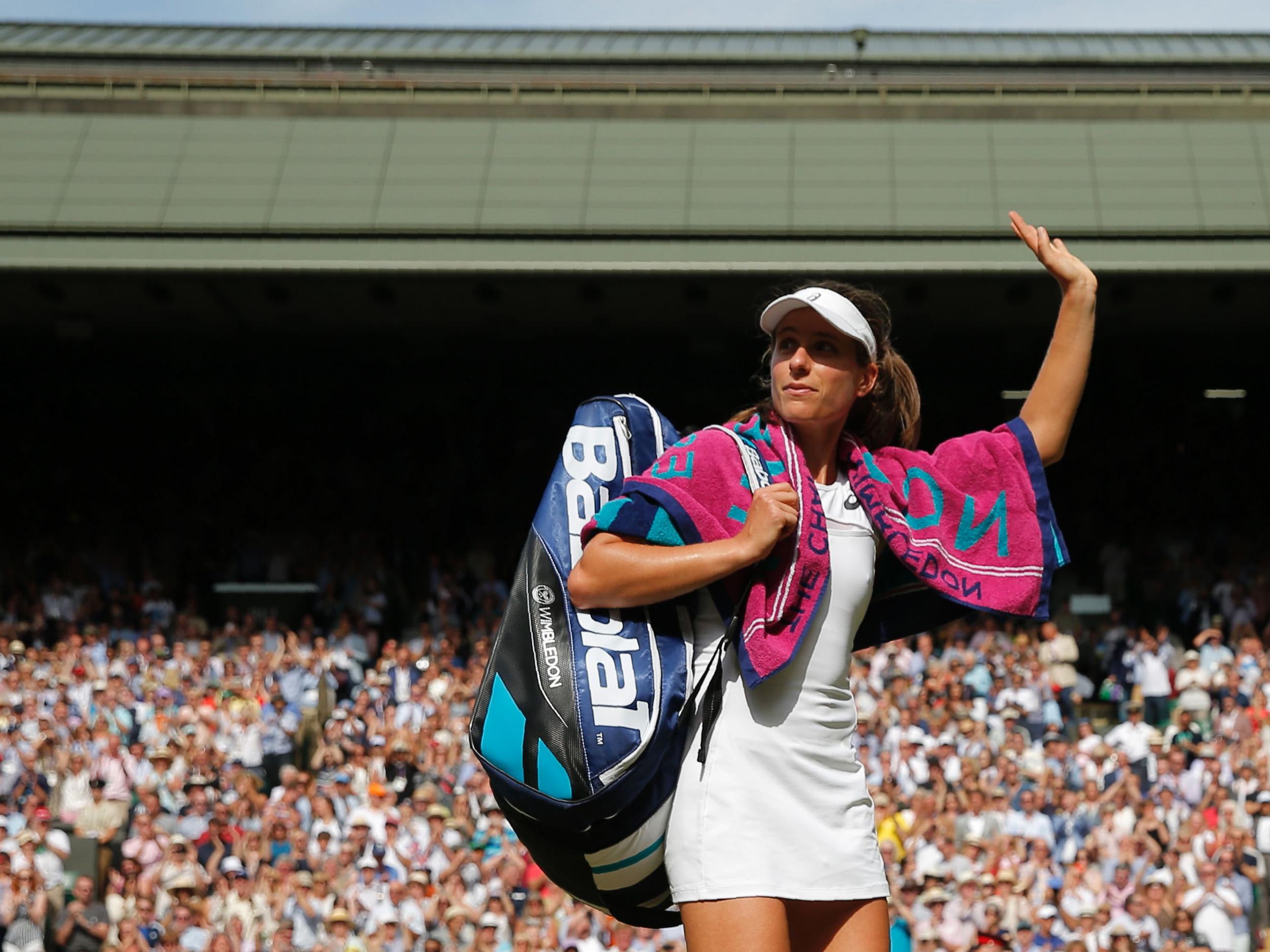
And so to the final weekend. Nobody at these Championships deserved their success more than Williams. Diagnosed with Sjogren’s syndrome in 2011, an auto-immune disease whose symptoms include joint pain and fatigue, the American’s appearance in the first round also marked her first match since her involvement in a fatal car accident in Florida. Police detectives would announce during the tournament that she was not at fault for the collision.
Despite all of this, Williams played with a relentless determination to reach her ninth Wimbledon final, in the hope of becoming just the fourth women to win six singles titles at The Championships. In the end, however, she fell just short. Having started the final against Garbine Muguruza competitively, she wilted, losing 7-5 6-0 in just an hour and 17 minutes.
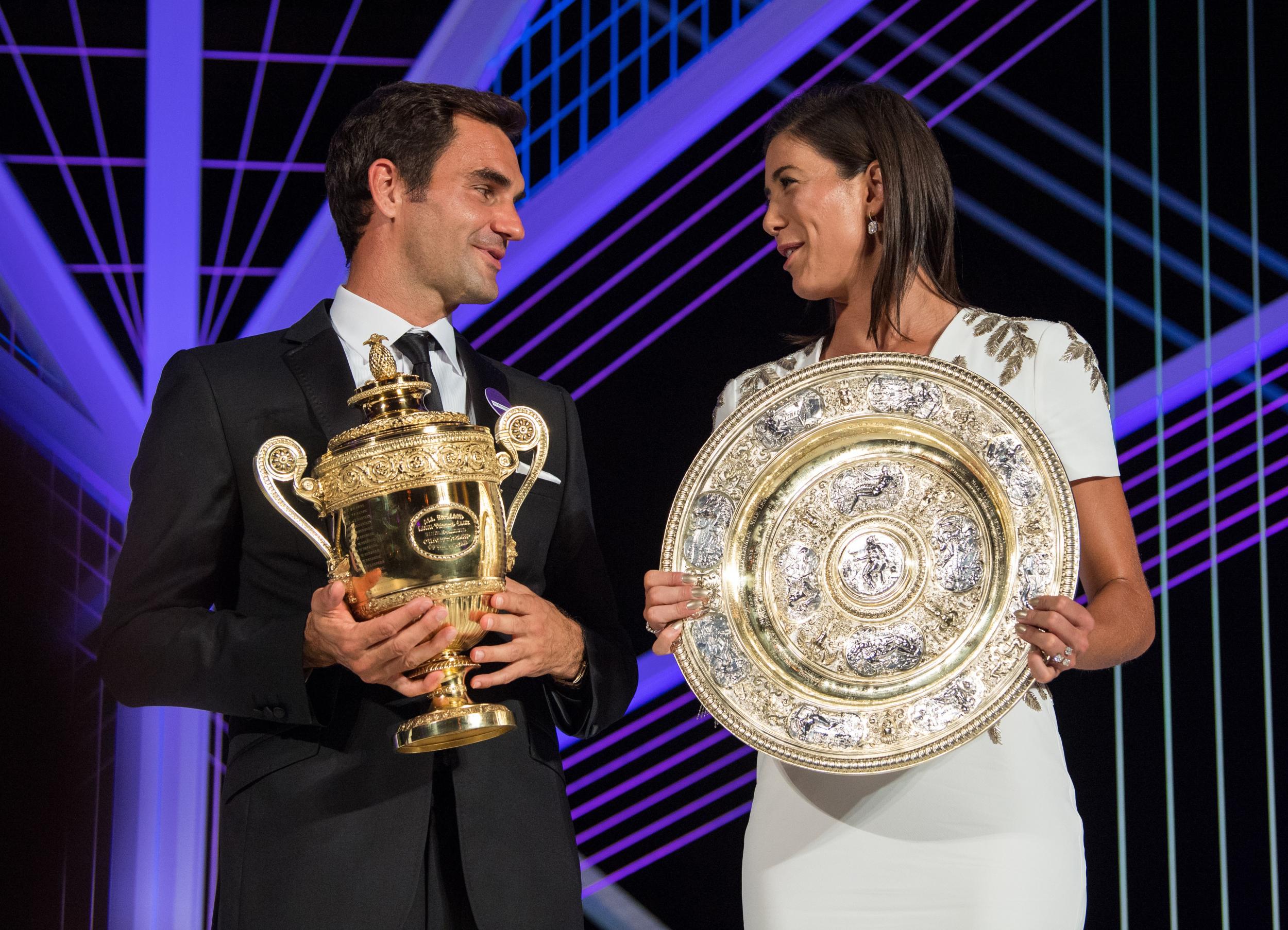
This was a turnaround, too, for Muguruza. Less than two months ago, her French Open title defence had culminated in her being led away from a press conference in tears, reflecting on a bad-tempered loss to home hope Mladenovic. Things could not have been more different here. Powerful, athletic and dangerous on every surface, the Spaniard deserved her title, and would appear to be the most likely heir to Serena’s throne.
The king of Wimbledon, however, looks unlikely to be dethroned anytime soon. Do not be lulled by a false narrative: this was far from one final hurrah for Federer, the only man in the history of tennis to win as many as 19 Grand Slam singles titles. The Swiss arrived at The Championships as the bookmakers’ favourite to win and did so in style: not since Bjorn Borg in 1976 has a man breezed through the draw without dropping a solitary set.
Marin Cilic, playing in just his second Grand Slam final, can reflect on a superb campaign here, but ultimately these Championships belonged to Federer. And despite the varied controversies, the continued poor form of Andy Murray and a lack of truly world-class matches, Wimbledon 2017 will be forever remembered as the Wimbledon at which Roger Federer cemented his legacy as the greatest man ever to play on the velvet lawns.
Join our commenting forum
Join thought-provoking conversations, follow other Independent readers and see their replies
Comments